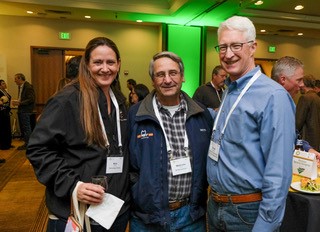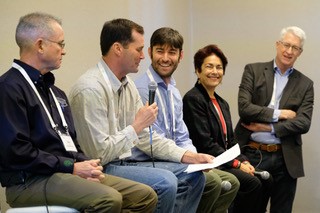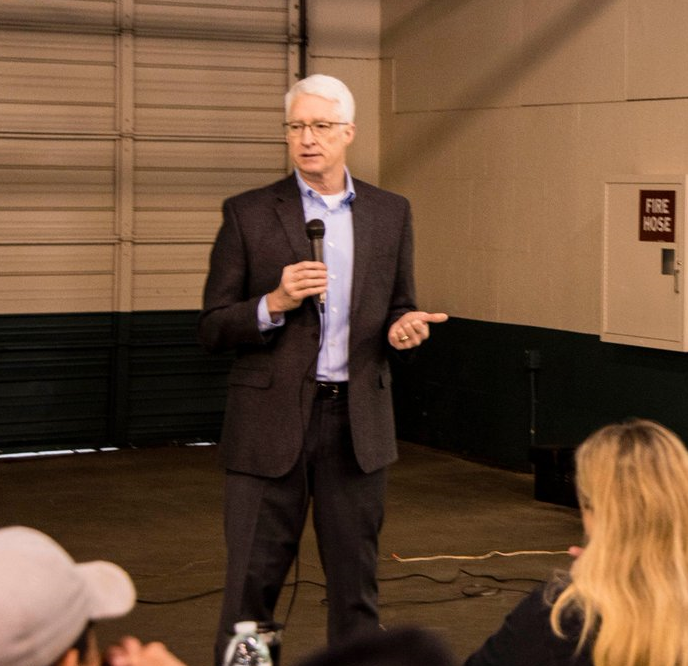Brian Leahy served as director of the California Department of Pesticide Regulation (DPR) for seven years. During his tenure, he worked on public protection measures to ensure those who apply pesticides are properly licensed. Leahy has enjoyed a varied career as an attorney, an organic rice farmer and the Executive Director of CCOF. OPN Connect sat down with Brian to review his tenure and his work related to pesticide regulations.
OPN Connect: What are some of the biggest accomplishments you achieved as head of DPR?
BL: “The number one thing we did was to get ready for the next generation. The greatest threat to state agencies as identified by agency heads is the great retirement exodus of long-term employees. We identified existing talent, actively recruited new talent, and invested in training and team building. DPR now has a talented team that works well together.
We also greatly expanded the awareness and protections of non-agricultural application of pesticides. There are hundreds of thousands of workers who apply pesticides on a regular part of their work but are not trained in the same rigorous standards as agricultural workers. As a consequence, most of the identified pesticides illness occur in non-agricultural pesticide applications.

Brian Leahy (far right) at OGS 2018
We went after brokers importing produce with illegal residue and we worked with the legal cannabis producers who have greatly improved their use of pesticides. We initiated a Soil Health initiative by hosting a symposium that came out of recommendations created by a Strawberry Production working group that identify knowledge gaps in soil health that’s a major barrier to growing strawberries without using soil fumigants.
A last accomplishment is the “Pest, Pesticides and IPM Project.” I brought the best pest managers in state together with the people who deal with pesticides to talk about the pest challenges in California. Pest management is essential to modern life, our food supply, public health and resource management all rely on effective pest management. The pest challenge risks in California are greatly expanding at same time that existing tools are being removed from the market or are losing efficacy because of resistance issues.

Brian Leahy
As an early organic grower, I have always understood that a chemical based pest management systems approach had inherent internal conflict. While pesticides are cheap and effective in the short term, they unintended consequences to human health and the environment and they have resistance issues that undermine them. A strong, science based regulatory program mitigates the negative consequences to some extent, but that approach is under attack.”

Brian Leahy (far right) at OGS 2018
OPN Connect: What need did you see for pesticides management as a result of your work at DPR?
BL: “We need to get to a biological based systems approach. Chemical pesticides will always be part of pest management and we need a strong regulatory program, but we are lacking the resources necessary to manage pests in the way that society wants.
Society has left the development of pest management tools to a handful of private companies who invest hundreds of millions of dollars and over a decade to bring a new product to market. There is virtually no public investment in non-chemical approaches to pest management. The University of California Integrated Pest Management Program budget is a pittance. True organic pest management research is a minuscule percentage of agricultural research. Until society is willing to invest substantial sums into biological systems approaches to pest management, we are reliant upon the chemical approach. One half of the world’s children are at risk of a major illness or death from the bite of a mosquito bite- that is the consequence of when there is not effective pest management.
Advocating for the elimination of effective pest management with replacement tools is advocating for tragedy. Society needs to acknowledge that we must control pests and that we must invest in the type of approach that works in the long run- a biological based systems approach.

OPN Connect: How did your experience as an organic farmer inform your thoughts?
BL: “When I first started growing for Lundberg Family Farms, organic wasn’t popular - the federal government was hostile - UC California said you couldn’t grow food that way - the newspapers said it was a communist conspiracy.
It was good training for me. When I came into government, I had an open mind and that openness helped me explore different options. Being a farmer makes it real - it’s your powers of observation, patience and hard work. The experience of running a CA. business and managing natural resources was invaluable. The basic skills of organic farming opened my eyes to the importance of soil health. Soil health brings a willingness to look at systems approach in pest management.
When you’re a farmer you learn that the way you get things done is by working together as a team. I got into organic because of my love of soil and natural resources. When I first took this job my friends were all the early anti-pesticide folks and they asked why you are going to do that to yourself? Once your eyes are open you do need to act.






